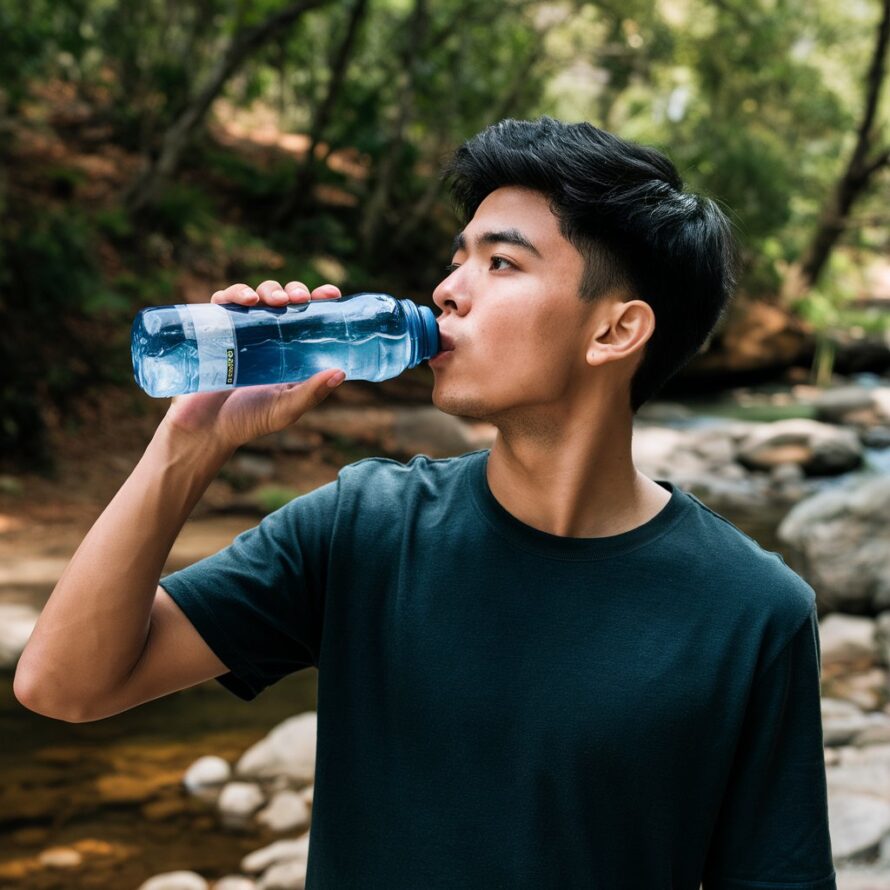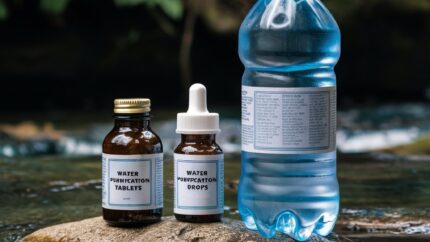A portable water filter is one of the most convenient and reliable ways to ensure you have safe drinking water. These handy devices are designed to remove harmful pathogens from water, making it safe to drink almost instantly. There are different types of portable water filters, including straw filters, pump filters, and gravity filters, each with its own pros and cons.
Take the LifeStraw, for example. This popular straw filter is incredibly lightweight and easy to use. You simply place one end in the water source and suck through the other end, much like you would with a regular straw. It removes bacteria and protozoa, making it a great option for drinking directly from streams and lakes. The Sawyer Mini is another excellent choice. This filter is versatile and can be used in multiple ways: you can attach it to a standard water bottle, use it as a straw, or set it up as a gravity filter. It’s effective against bacteria and protozoa and is small enough to fit in your pocket.
Pump filters like the Katadyn Hiker Pro are slightly bulkier but offer a faster flow rate and can filter larger volumes of water. They work by using a hand pump to push water through a filter cartridge, which removes contaminants. These are ideal if you need to filter water for a group or fill multiple containers.
One of the biggest advantages of portable water filters is their portability and lightweight design. They are easy to carry in your backpack and can provide immediate access to clean water, which is crucial in a survival situation. They’re also effective at removing bacteria and protozoa, with some models capable of filtering out viruses. This makes them a reliable choice for most wilderness settings.
However, there are a few drawbacks to consider. Portable filters require regular maintenance to ensure they continue to work effectively. This often means cleaning the filter after each use and replacing it after it has processed a certain volume of water. Each filter has a limited lifespan, and once it reaches that limit, it needs to be replaced. Additionally, while many portable filters are excellent at removing bacteria and protozoa, not all are effective against viruses, which can be a concern in certain areas.
To get the most out of your portable water filter, here are a few tips.
- Always carry a spare filter or pre-filter if you anticipate needing a lot of clean water. This can help extend the life of your primary filter. In freezing temperatures, be cautious as the water inside the filter can freeze and damage it. If you suspect this might happen, keep the filter in a pocket close to your body or in an insulated container.
- Regularly backflush the filter, if the model allows, to maintain a good flow rate and ensure it remains effective.
Portable water filters are a great tool for anyone venturing into the wilderness. They offer a lightweight, easy-to-use solution for accessing clean drinking water on the go. While they do require some maintenance and have limitations, their convenience and reliability make them a top choice for outdoor enthusiasts and survivalists alike.


